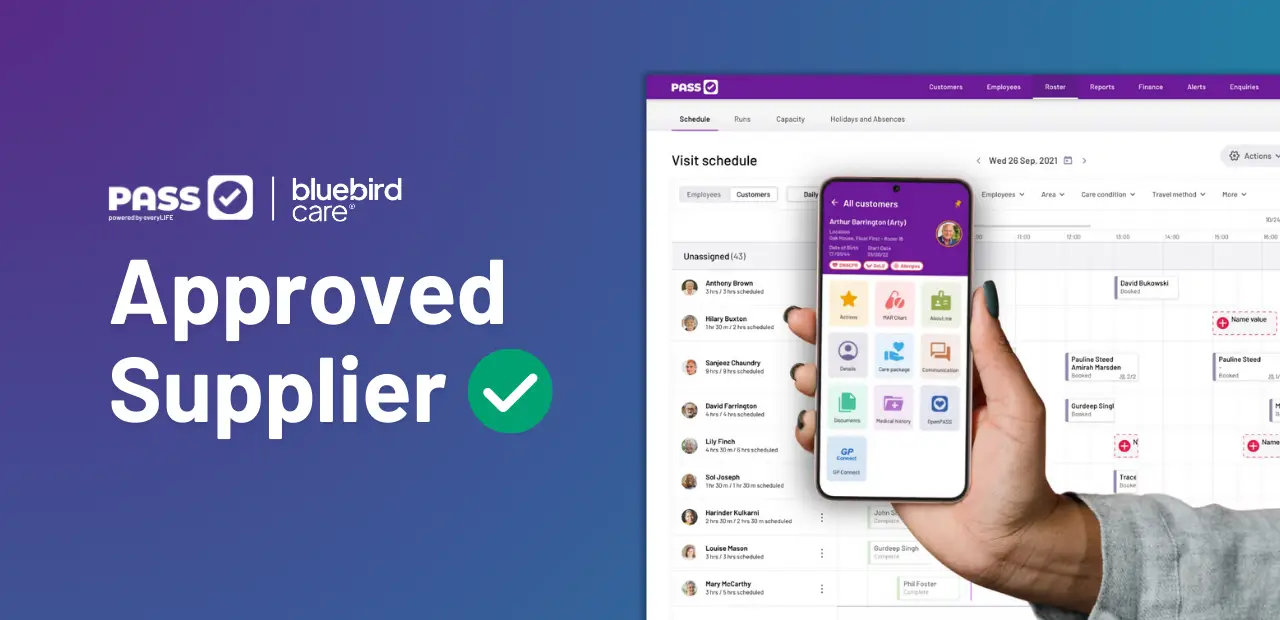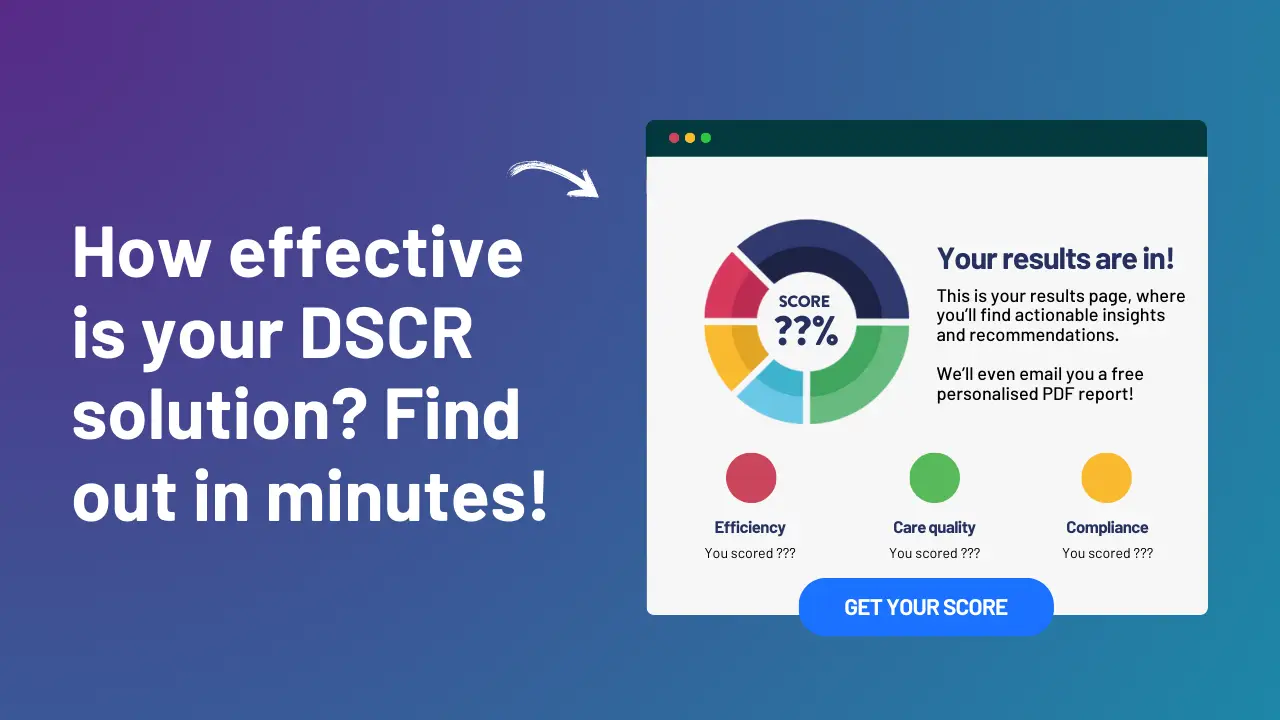Taffy Gatawa, Chief Information and Compliance Officer, everyLIFE Technologies, explains digital technology’s key role in achieving a fully integrated health and social care service.
 With her background as a registered nurse in the NHS, Taffy is ideally qualified for her part in pushing forward the digital integration of health and social care services.
With her background as a registered nurse in the NHS, Taffy is ideally qualified for her part in pushing forward the digital integration of health and social care services.
Taffy told CHP that she holds regular talks with the NHS and the CQC on information sharing and the role of technology in supporting / achieving this.
“We have been very proactive in engaging with NHS Digital, NHS England and the CQC to have conversations and to try and move things forward,” Taffy said.
“We are engaged with NHS Digital around their work on interoperability which is about how you enable different systems to talk to each other.”
everyLIFE provides the PASSsystem, the foremost and the first mobile digital care management platform, and its accompanying openPASS app, which enables access to care plans and care notes to family members and health care professionals, ensuring the necessary consent and information governance arrangements are in place.
Taffy was keen to explain that there’s a much greater ability to move safely and efficiently through different care settings when people are doing so digitally. “Movement between different care settings can be more seamless, with the necessary information made available at the right point and time that it is required by health and care professionals, removing the need for people receiving care having to recount their story at each care transition. This digital journey can help improve the experiences of care receivers and improve safety and quality of care.”
In terms of information sharing, “openPASS enables interaction between the care home and GP and District Nurse without any delays to care being delivered because information can pass in real time.”
Taffy highlighted that ensuring care home and NHS systems operate together as one of the main challenges facing health and social care integration and providing continuity of care.
“It is the boundaries within organisations that are probably the greatest challenge to health and social care integration, sometimes even two NHS organisations are not able to share information between their systems.”
The Compliance Officer said a cultural change was required within the NHS and other stakeholders regarding the adoption of technology to provide a seamless journey between health and social care.
“We need to shift away from the territorial scope within organisations and towards focusing on what is best for the person receiving care,” Taffy stressed.
“There’s a lot of fragmentation across the system. The way NHS Digital wants to do things might vary slightly from what NHS England wants to do, or what the local authority wants to do. We need to get all of those people around the table.” Recently NHS England called for Trusts to develop digital leaders and the same should apply within the care home sector, with more opportunities created for them to work together to achieve greater alignment.
Taffy told CHP that fragmentation was present on every level of the health and social system, including on a local Trust and geographic level, and called for the mandatory standardisation of the way providers operate.
“You have pockets of excellence. However, we want that to reach further and to spread that good practice,” Taffy said.
“If you could start to bring that in in a systematic way it could be really transformational.”
The Information and Compliance Officer said she was encouraged, however, by statements made by new Health and Social Secretary, Matt Hancock, on the importance of technology and innovation.
“Mr Hancock seems keen because of his background in technology to try and realise the benefits that technology can bring to health and social care.”
Taffy also stressed that technology providers needed to work together to ensure synergies between their systems so that care home providers can integrate different digital systems.
everyLIFE partners with digital roster providers to ensure they are compatible with the PASSsystem.
“We have developed our technology to be open,” Taffy said.
“For example, most domiciliary care providers we deal with will have roster systems before they use our digital planning, so it is important that they are compatible.”
Taffy’s background in nursing also serves her well in ensuring the security of the care data everyLIFE holds.
“Data protection and information governance is an important component of clinical governance in the NHS and I had previous experience of managing this and am therefore familiar with data protection legislation.
“œGiven that everyLIFE is in the business of processing the personal information for people receiving care, some of which is quite sensitive, that absolutely aligns with what I have been doing in my role as the Data Protection Officer.”

Offering advice and support to customers / care home managers on this year’s introduction of GDPR has been a key part of Taffy’s role.
“We have been looking at how we support our customers with this legislation and helping them to navigate through these new requirements and what they need to change or do differently,” Taffy explained.
As well as making some functional changes to the PASSsystem, this involved enhancing the product’s security and increasing customer awareness of GDPR.
Taffy and her team ran a series of webinars and have set up a data protection mail box to offer continuous advice and support.
“We have seen a lack of understanding and awareness amongst some customers about the extent to which they need to comply,” Taffy noted.
“We know many organisations have not thought through their data protection arrangements. For example, people haven’t thought about the basic training they need to be providing their staff and some of the security that they need to have in place, such as encryption of data or the security of physical records. People haven’t thought about privacy and using just the right amount of data they need so that it can be protected.”
Advising on data security policies for care operators whose staff use care apps on their personal phones has been a significant part of the work carried out by Taffy. An example would be: “Care providers need to have policies and procedures in place to ensure the security of people’s personal data in the event a phone is lost or stolen,” she said “The ICO provides guidance for providers about best practice in maintaining information security. The new data security and protection toolkit will also mean that care home providers will be able to assess how well they are adhering to the National Data Guardian’s data security standards.”
everyLIFE recently invited the Information Commissioner’s Office (ICO) to carry out an audit to validate its GDPR and compliance work.
“That was a really useful exercise because it helped us to identity areas for improvement but also helped to validate the work we had done,” Taffy said.
The technology provider has also become the first digital care software provider to commission the Social Care Institute for Excellence (SCIE) to validate the benefits its system provides.
“We are really excited about it because it will offer independent validation of our products and its benefits,” Taffy said. “Through the SCIE work, we will be talking to people who are receiving care and people who are providing that care. They will be testing that out in terms of cost-benefits analysis and as well as the qualitative experience of people who are being looked after with our technology.”
Looking ahead, Taffy feels sure that digital technology will be key to helping care providers overcome the challenges they face.
“Technology can help combat the challenges social care is facing with demand rising and funding struggling to keep up because it can free up time and those resources can be redirected elsewhere.”
“You can start to make data driven decisions so that your clinical and social care interventions are targeted and you know you are going to achieve results.”
“Without data you are never quite sure what is making the difference. Through analysing the data you can be sure about what is causing the outcome. That has to be the way forward.”
In another first for the sector, recent modifications to the PASSsystem have focused on delivering data-driven decision making. everyLIFE has developed its Insight dashboards to help users drill down at a resident, care worker and business level to see when incidents such as falls happen so that providers can target resources at particular hotspots.
“This starts to give you information that you can act on to improve your business or make your care safer and direct your resources more efficiently,” Taffy said.
“This goes beyond reporting to directing the insight you want. We are looking more at delivering desired outcomes rather than delivering tasks.”

With health and social care leaders increasingly advocating the early adoption of technology, Taffy points out that work remains to be done to ensure it is successfully implemented.
“We can only achieve sustainability through technology but it has to be a systematic programme with proper governance because we have seen countless IT programmes in the NHS and public services elsewhere that have not been successful.”
“People have to be made ‘digital ready’ in terms of the culture and changes of process so you don’t get people saying the technology isn’t good enough.”
Taffy added that leaders also needed to be signed up to ensure that organisations consistently supported digital adoption.
“We still occasionally encounter instances of local authorities and CQC inspectors saying providers have to use paper,” she pointed out.
While progress on digital take-up may be slow in some quarters, Taffy said the sector was increasingly being shaped by consumer power.
“People are now accepting that they need to have digital care planning as a given.”
“Technology gives providers more of a competitive advantage and there are efficiency gains. There’s much more peer competition. Relatives are also becoming more tech savvy and expect it to be there. So increasingly, I’m glad to say, embracing technology and all the safety value it brings, is expected from a consumer point of view too.”
To find out where Taffy is doing her next talk or to view her recent presentations on video please go to https://everylifetechnologies.com/about-everylife-technologies/
Taffy’s data protection support mail box is: dataprotection@everylifetechnologies.com




